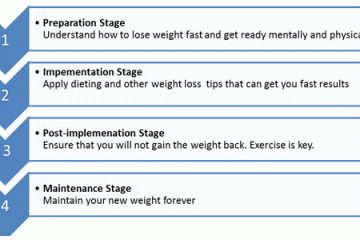How to Control Your Weight with Hypothyroidism
1. Consult a Physician:
- Prioritize medical care from a healthcare provider, such as an endocrinologist, specializing in thyroid disorders.
- Follow treatment guidelines and ensure your thyroid hormone replacement medication is well-managed.
2. Understand Your Metabolism:
- Recognize that hypothyroidism slows down your metabolism, making weight loss more challenging.
3. Caloric Deficit:
- Work with a healthcare provider or dietitian to determine a safe and personalized calorie intake.
- Create a calorie deficit where your daily calorie intake is slightly less than what your body needs.
4. Nutrient-Rich Diet:
- Consume a nutrient-rich diet emphasizing fruits, vegetables, lean proteins, whole grains, and healthy fats.
- Include fibrous foods to keep you full.
- Limit processed and high-calorie foods.
5. Regular Meals and Snacks:
- Eat regular meals and healthy snacks throughout the day.
- Avoid long periods of fasting, as this can lower your blood sugar levels and increase your appetite.
6. Adequate Protein Intake:
- Protein is essential for maintaining muscle mass during weight loss.
- Aim for approximately 0.8-1 gram of protein per pound of body weight.
7. Moderate Exercise:
- Regular exercise can help you burn calories and increase your metabolism.
- Start with moderate-intensity activities such as brisk walking, cycling, or swimming.
8. Strength Training:
- Incorporate strength training 2-3 times a week to build muscle mass.
- Building muscle can help increase your calorie burn over time.
9. Adequate Sleep:
- Poor sleep can disrupt hormones, including those regulating appetite.
- Aim for 7-8 hours of good-quality sleep each night.
10. Stress Management:
- High levels of stress can increase cortisol, a hormone associated with weight gain.
- Practice stress management techniques such as deep breathing, yoga, or meditation.
11. Stay Hydrated:
- Drinking water can help you stay full and can contribute to healthy weight management.
12. Medication Consistency:
- Ensure consistent adherence to thyroid replacement medication as prescribed by your healthcare provider.
- Work closely with your healthcare provider to monitor your thyroid hormone levels.
13. Monitor Progress:
- Regularly monitor your weight and body composition.
- Celebrate your successes and adjust your approach as needed.
14. Patience is Key:
- Weight loss with hypothyroidism can be gradual, so be patient and persistent in your efforts.
Remember that everyone's body is unique, and the approach that works for one person may not be the best for another. It's essential to work closely with a healthcare provider and follow personalized guidance and treatment to effectively manage your weight with hypothyroidism.
-
How To Lose Weight Naturally – Salads For Multiple Meals
It’s no secret that eating healthy is a major part of losing weight.
-
The benefits of losing weight slowly
If you take a look at the advertisements for weight loss, you’d notic
-
How to lose weight while in college?
It is very common for college students to gain weight during th
-
How can I lose the weight I have gained quickly?
Question: Hi My name is Kaila,.adslot_1 { width: 660px; height
-
How to calculate your basal metabolic rate – BMR
What is the basal metabolic rate – BMR? The Basal Metabol
-
How to lose weight – the basic rules
Unlike other illnesses, fighting obesity would require much more than
- Methods To Reduce Weight
- How to lose belly fat after pregnancy
- 7 Steps on how to lose weight
- How can I lose the weight I have gained quickly?
- How to Lose Weight in a Week
- How to Burn Fat And Build Muscle At The Same Time
- How to lose weight if you have a slow metabolism
- How to lose 5 pounds in 2 days
- How to lose pregnancy weight?
- How to lose 5 pounds quickly?
- How To Lose Weight Naturally – Salads For Multiple Meals



